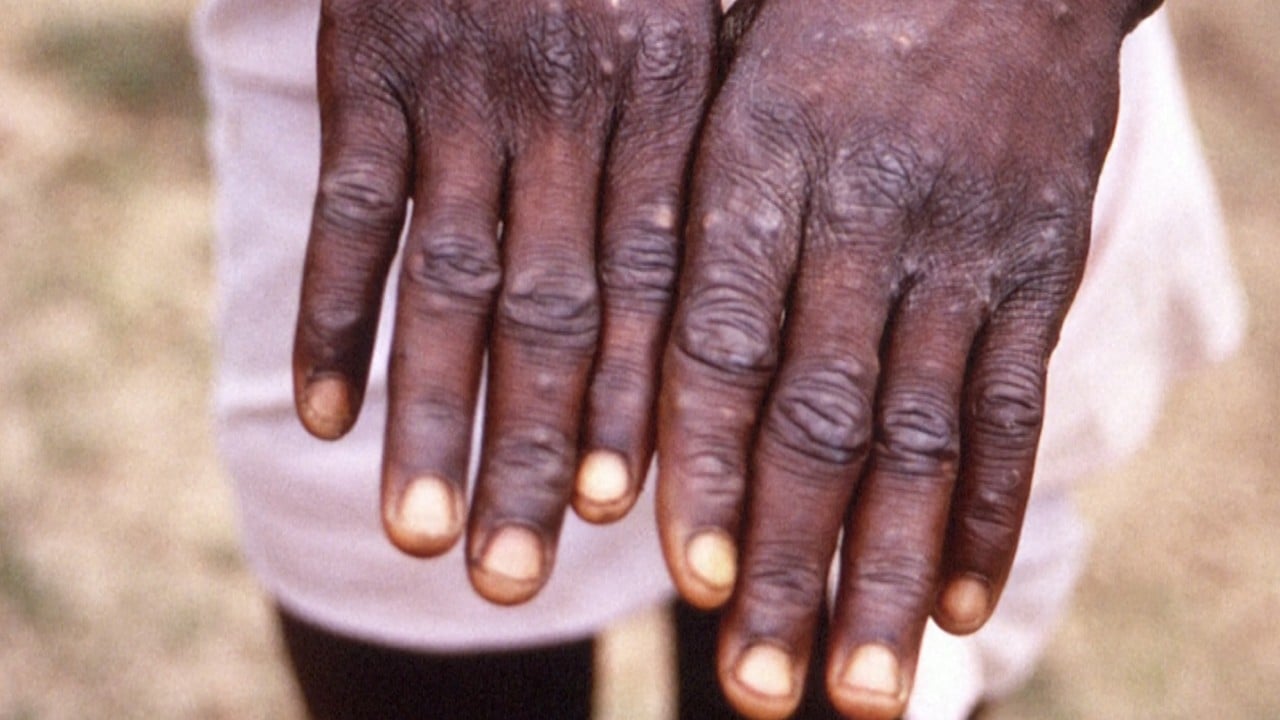
Online backlash over Chinese expert’s monkeypox prevention warning
- Top epidemiologist suggests avoiding direct skin contact with foreigners or overseas returnees after China reports its first case
- Internet users ridicule the advice, describing it as vague and inappropriate
In a verified Weibo post on Saturday, Wu suggested: “To prevent possible monkeypox infection, and as part of our daily healthy lifestyle, [I] advise 1) don’t have skin-to-skin contact with foreigners; 2) don’t have skin-to-skin contact with people who have returned from abroad [in the past three weeks].”
He also advised the public not to have skin-to-skin contact with strangers and to use disposable toilet seat covers in public facilities, including in hotels.
Wu’s suggestions were ridiculed by many Chinese internet users, with some saying they found them “racist and discriminatory”.
“How racist is this? What about the ones like me who have been living in China for almost 10 years and we haven’t seen our families in like 3-4 years due to the borders being closed,” a commenter said on Weibo in response to a Global Times post about Wu’s recommendations.
Another Weibo user said she found Wu’s description “very inappropriate”.
“There are still so many foreign friends working in China. At the beginning of the epidemic, some foreign friends stood up and used social platforms to tell everyone that ‘Chinese people are not viruses’,” she said, adding that Chinese people should not now be silent when many foreigners were facing discrimination in the country.
Another Weibo user said Wu’s recommendations were not specific and could be misinterpreted.
“Is he referring to a sexual relationship or just skin-to-skin contact? I guess he meant the former. But it is inevitable to have handshakes when you meet foreign guests. It’s also hard to avoid skin contact on the bus,” the user said.
Are smallpox vaccines effective for monkeypox? Hong Kong research offers insight
Wu suggestions are not reflected in China’s official monkeypox diagnosis and treatment guidelines published by the National Health Commission.
The target group included “importantly but not exclusively gay, bisexual and other MSM with certain high-risk sexual practices or history of sexually transmitted infection within the past 12 months”, the CHP said referring to men having sex with men.
It said the latest global epidemiology of monkeypox showed the main affected group was men with multiple male sexual partners. Other target groups for pre-exposure vaccination could include sex workers, participants in group sex or other persons having multiple sexual partners, and health workers responsible for care of confirmed monkeypox patients.
In his controversial posting, Wu also said that besides the Chongqing imported case, the possibility of other monkeypox cases slipping through China’s strict quarantine measures at its border was “very small” and “can be basically ignored”.
Because of the similarities between monkeypox and the smallpox virus, those vaccinated against smallpox would have immunity to monkeypox, he said.
Wu said that meant Chinese people over 42 would be safe from monkeypox because the country had a national smallpox vaccination plan until 1980, when the World Health Organization announced the global eradication of smallpox.



